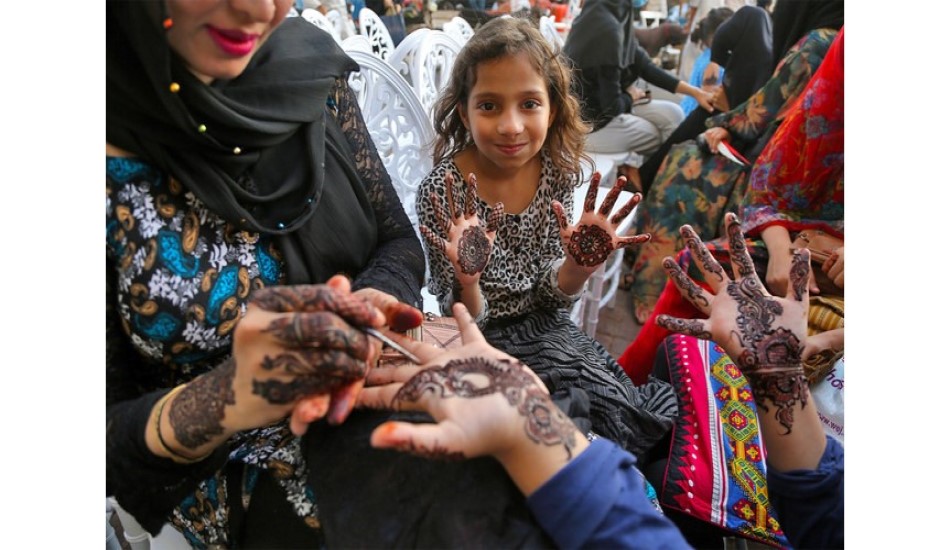Common Myth about Pakistan, The Islamic Republic of Pakistan came into being in 1947 as a result of a group of Muslims who sought to establish their own country separate from Hindu-majority British India in South Asia. This region, known as the Indus Valley, is steeped in history, with settlements that date back to ancient times and are among the most frequently travelled in the world. It is between the Himalayas, the Khyber Pass, and the Arabian Sea.
Pakistan became the 7th country to acquire nuclear weapons. It has established itself as a prominent name in the world and is known worldwide. However, despite its efforts to promote peace, the country has gained a negative reputation, and it is often misunderstood and underestimated by other nations. The world needs to be made aware of the beauty and talent that Pakistan possesses, which puts Pakistanis at a disadvantage when they endeavour outside their country.
Pakistan is a beautiful and diverse country with much to offer. Unfortunately, it is often misused by false stereotypical media portrayals that need to be debunked and cleared upfront to prevent further damage to the country’s image.
Common Myth# 1: “Pakistan Is Only A Desert Country”-
Well, that is not true; Pakistan is not ‘Only a Desert’ but a relatively Diversified Country’. Pakistan is home to Natural Beauty and full of sight-seeing and historical places. The North of the country has the five highest mountain peaks in the world for those who love hiking and mountaineering. In the South, there is a coastline of over 1046km for beach-lovers.
The lush green valleys of Kashmir up Northeast, known as ‘Mini Switzerland’ and ‘Paradise on Earth’, also significantly contribute to the Natural Beauty of Pakistan.
Pakistan has plenty of vegetation as its economy hugely depends on the agricultural sector. The country is the land of five major Rivers that add to its natural beauty.
Common Myth# 2: “Pakistan is Unsafe for Travel”-
Tourism in Pakistan has increased by 300% in recent years due to the country’s improved security situation that is a common myth about pakistan. The last 6-7 years have been stable, and all major tourist spots are now safe for local and foreign tourists. The Pakistani government is making efforts to attract more foreign visitors. Internationally acclaimed food vloggers Mark Wien and Trevor Jones have praised Pakistan’s culinary delights after touring the country. Pakistan has been acknowledged as the next tourist destination of the 21st century by international news outlets due to better security, improved infrastructure and affordable accommodation.
Common Myth# 3: “Pakistan Lacks Cultural Diversity”-
Pakistan is a country with a rich and diverse culture that is spread across all its regions. Each region claims its unique culture and natural beauty, which makes Pakistan one of a kind in the world. The Pakistani cultural heritage has been passed down through generations, and it is reflected in various forms, from the colourful painted trucks to the vibrant dresses worn by the people. All of these elements contribute to the country’s rich and fascinating culture.
Common Myth# 4: “Pakistani Women Have Limited Rights“-
In many cases, people hold the misconception that women fewer opportunities compared to men a common myth about Pakistan. However, this belief is often rooted in regional differences. When it comes to the status of women, there is a noticeable contrast between rural and urban areas. In rural areas, women are often expected to do household chores and are given few opportunities to pursue their goals. On the other hand, in urban areas, women being offering equal support to pursue their desired careers and education. Women are being empower and also given opportunities at the same level as men.
Common Myth# 5: “Pakistan Is A Technological Backwater“-
The advances that Pakistan has made in the field of science and technology are truly remarkable. With a growing number of highly skilled professionals, the nation is making significant contributions to technological advancements. This is apparent in the rapid expansion of media houses and developments in the military sector, which demonstrate the country’s unwavering commitment at the forefront of technological innovation.
Common Myth# 6: “All Pakistanis Are Extremists”-
A next Common myth about Pakistan is being a terrorists. Contrary to popular belief, Pakistan has always played a leading role in combatting terrorism, and the majority of its citizens do not carry firearms or keep weapons in their homes. Additionally, individuals are free to practice their desired religion without fear of discrimination. The notion that foreigners are unsafe in Pakistan is a myth Pakistan is home to some of the most hospitable and welcoming people in the world. The warmth and openness of the locals towards tourists is unmatched, and it is not uncommon for visitors to feel completely at ease in the company of Pakistanis.
Despite past isolation and negative portrayals in the media, the people of Pakistan have remained grounded and down-to-earth. There is an attribute to the fact that there was a significant decline in tourism after 9/11, and for a decade, very few foreigners visited the country. As a result, the locals have developing a strong culture of hospitality, and expect to see food vendors refusing payment from guests. This is because Pakistanis believe that guests are the embodiment of God, and they must provide for them. It is little gestures like these that make Pakistan unique.
Common Myth# 7: “Pakistani Cuisine has Limit To Curry”-
Pakistani cuisine blends regional dishes with influences from Iranian, Afghan, Persian, and Western cultures. Therefore, Pakistani cuisine is wider than curry. The use of heavy spices in Pakistani cuisine has Indian roots dating back to the Mughal Empire. The country is divided into five provinces, each with its unique culinary style. Rice, flatbread, lentils, vegetables, yoghurt, and fruits are staples in Pakistani cuisine, and the average Pakistani consumes three main meals a day. Halva Puri is a popular breakfast dish, and lunch and dinner usually include a carb, protein, vegetables, and yoghurt. Pulao and biryani are popular festive dishes made of spiced rice, vegetables, and animal protein, with biryani that cook separately.

Common Myth# 8: “Pakistan Has No Natural Beauty”–
Pakistan’s Natural Beauty and Tourism industry has been unfairly impact the negative portrayals in international media, which has caused many to falsely believe there are no worthy destinations to visit. This couldn’t be further from the truth, as Pakistan boasts some of the world’s highest mountain peaks, five major rivers, a 1000 km coastline, and a 5000-year-old civilization. The stunning green valleys of Kashmir only add to the country’s breathtaking landscape.

Common Myth# 9: “The Media Centers On Negativity“-
Despite Pakistan’s global significance, its true beauty, rich culture and potential, it is often overlooking due to the negative image portrayed by the Western media(common myth about Pakistan). Therefore, regrettably, it is complex and challenging for Pakistanis to get ahead in the outer world.
There is a growing consensus against Pakistan in the global think tank industry of Western countries, which is a cause for concern. This situation must be addressing urgently to prevent further damage.
Pakistan has paid a tremendous cost for being at the forefront of the war on terror. The country lost approximately 80,000 lives, including 50,000 civilians, 6,000 security personnel, and 27,000 militants between 2004 and 2013. Despite its sacrifices, Pakistan is often view as the West an untrustworthy ally that actively promotes Islamic radicalism.
Pakistan’s negative global perception is multifaceted. In addition to the dominant security establishment, the country’s political parties are also disorganize, lacking internal policy thinking and the ability to address more significant security and foreign policy issues. This has resulted in the civilian governments needing help to make any substantial impact since 2008. The government of Pakistan’s relationship with the international media has been problematic, further worsening negative perceptions.
The rapid growth of social media has challenged the government’s ability to control information sources, making them difficult to manage. Despite attempts to threaten local Pakistani media organizations, such actions taken through their correspondents’ close ties with local media houses. Pakistan must address these issues to prevent further damage to its image in the worldwide community.

Common Myth# 10: “Pakistan’s Contributions To The World”-
Pakistan has a collection of impressive and appealing features that make it a unique destination. With six UNESCO World Heritage sites, Pakistan is also home to some of the world’s highest peaks, including K2, and the Karakoram Highway, linking Pakistan to western China, stands as the highest paved international road globally; Pakistan is truly a gem. Furthermore, the National Bank of Pakistan operates an ATM at the highest elevation globally.
The country also has a rich history of innovation, being the birthplace of the world’s first PC virus, created by two Pakistani brothers. The government made history by launching its first artificial robotic satellite, becoming the first Muslim-majority nation to do so. Pakistan’s military is now among the top 10 most powerful armies in the world, and it joined the nuclear club in 1998. The late Benazir Bhutto made history as the first woman to lead a democratic government in a Muslim-majority country.
Pakistan is renowned for its agricultural expertise, with the world’s most extensive irrigation system producing crops such as wheat, cotton, sugarcane, mango, dates, and known oranges. It also ranks 10th globally in rice production and accounts for 40% of soccer ball production worldwide. The country exports a range of products, including textiles, leather and sports goods, chemicals, carpets, and rugs, as well as significant quantities of rice, sugar, cotton, fish, fruits, and vegetables. Pakistan is also famous for its adventure tourism.

Conclusion:
While it’s undeniable that every country has its own set of challenges and imperfections, Common myth about Pakistan ,unfortunately, has internal and external factors that have cast a negative influence and impact on its global reputation. However, despite these obstacles, the country has demonstrated an impressive level of determination and spirit, thanks in large part to the firm patriotism of its people. With such admirable qualities, it’s only a matter of time before Pakistan’s image is restored globally.

